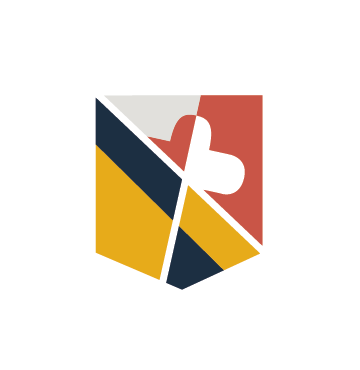Completion of college-level requirements in the mathematical sciences is one of the most common and vexing impediments to college completion rates, especially for students from lower-income families and underrepresented minorities, where high-school preparation in mathematics is often insufficient. For this reason, important efforts to improve student outcomes in higher education have focused on the application of learning science and use of digital learning platforms to improve the delivery of mathematical sciences content, and on the identification of common learning outcomes and broadly accepted standards in foundational courses—especially introductory statistics. This project builds on this work, as well as on the prior experience of ITHAKA in successfully testing a prototype statistics course with institutions in the University System of Maryland (USM), State University of New York, and the City University of New York.
The goal of the Adaptive Learning in Statistics (ALiS) project is to determine if a flexible learning approach, based on a set of standardized learning outcomes and built on a sophisticated adaptive learning platform (with dynamic authoring capabilities and a rich library of content), can unify content, improve learning outcomes in gateway mathematics courses without increasing costs, and facilitate the transfer of credit between institutions. Our hypothesis is that this strategy can, with the commitment of system-wide faculty and administrative leadership, produce improvements in learning outcomes across a potentially large group of 4-year institutions and community colleges, particularly for at-risk students. Moreover, we hope to show that, especially if one focuses on costs per successful outcome, this approach may result in lower costs for both students and institutions.
The course being developed for the ALiS project is a credit-bearing introductory course in college-level statistics built on a sophisticated adaptive learning platform from Acrobatiq, a company created at Carnegie Mellon University. The course is being designed to meet GAISE standards and to be a multiple pathway option, as developed by the Dana Center at UT Austin and the Carnegie Foundation for the Advancement of Teaching (CFAT) and endorsed by Transforming Post-Secondary Education in Mathematics (TPSE Math). The course also meets the learning outcomes goals for the introductory pathway statistics course recently adopted by the State of Maryland.
The ALiS Project
The ALiS Project has two primary hypotheses. The first is that courseware delivered on a sophisticated adaptive learning platform, as an augmentation to instructor-led classroom instruction, can significantly improve student outcomes without increasing costs. The second is that such a course, with agreed-upon learning outcomes and delivery strategies, can be taken to statewide scale.
The ALiS course is being developed and delivered using the Acrobatiq adaptive learning platform. Acrobatiq is a new company formed by Carnegie Mellon University and is based on the work of the university’s highly successful Open Learning Initiative (OLI). Adaptive learning platforms are computer-based educational systems that dynamically modify the presentation of material in response to student performance—putting the learner at the center of a more personalized learning experience. As students interact with course materials, data are continually collected, analyzed, and reported to a dashboard that allows both students and faculty to closely monitor progress and understand in real time how well students are mastering course learning objectives. With less time needed to deliver content, faculty are freed to focus on struggling students or guide smaller group-based interactions, as well as intervene on a course-wide basis if larger numbers of students are struggling with specific blocks of material and/or basic concepts.
The ALiS Project course was co-developed and tested during 2016-17 by the University of Maryland College Park (UMCP) and Montgomery College (MC) under the direction of the ALiS Project team.[1] Because many of the community college transfer students at UMCP come from Montgomery College, working together to determine statistics course learning objectives, agree upon delivery strategies, and identify shared instructional materials should facilitate the transfer of these course credits. In this way, these 2-year/4-year collaborations promise to create opportunities to scale this work while improving transfer pathways for Maryland college students, particularly in mathematics. They also provide valuable professional development opportunities for instructors in both institutions to work together on developing and implementing an innovative course delivery strategy.
Based on the experience gained during limited pre-pilot offerings of the ALiS course during the fall 2016 semester at UMCP and Montgomery, the team is now developing and testing different pedagogical approaches to identify those that are optimally effective for student success.
In 2017-18, with significant funding from a major foundation, our plan is to “scale-up” the delivery of the course and identified pedagogical approaches at additional USM and Maryland community colleges. A rigorous analysis of student success will be conducted to determine if the adaptive learning technologies and pedagogical approach measurably improve student-learning outcomes. The proposed pilot will compare learning outcomes for students taking ALiS sections of the statistics course (“treatment group”) to students taking standard format/traditional sections of the statistics course (“control group”).
This pilot will take place over the 2017-2018 school year and will involve faculty from the following institutions:
- Anne Arundel Community College
- Community College of Baltimore County
- Frostburg State University
- Harford Community College
- Montgomery College
- Towson University
- University of Maryland, Baltimore County
- University of Maryland, College Park
- Wor-Wic Community College
-----------
[1] In addition to UMCP and MC, the ALiS Project team also includes ITHAKA; the Kirwan Center for Academic Innovation of the University System of Maryland (USM); the Transforming Post-Secondary Education in Mathematics (TPSE Math) as content advisor; Acrobatiq as provider of the adaptive learning platform and advisor on delivery and content; and the Urban Institute as leader of the project assessment team.







